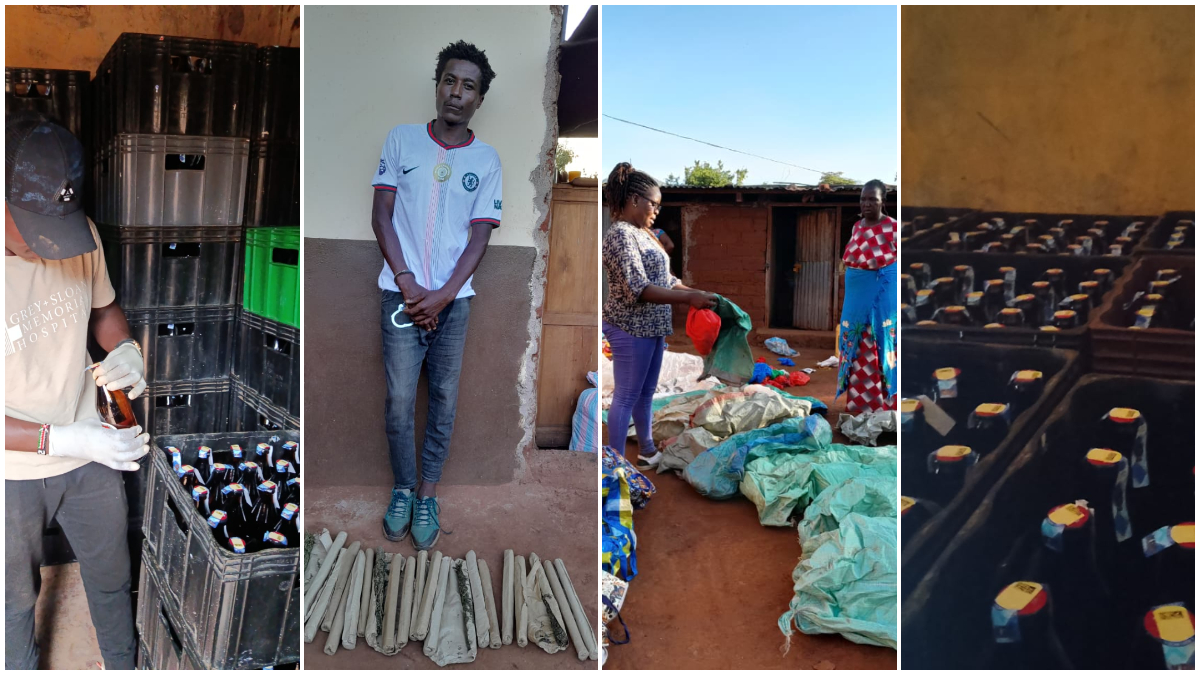The Evangelical Alliance of Kenya (EAK) has welcomed and supports the newly-released National Policy for the Prevention, Management, and Control of Alcohol, Drugs, and Substance Abuse spearheaded by NACADA and the Ministry of Interior and National Administration.
In a statement to newsrooms on Saturday, August 2, EAK — which prides itself as a faith-based network committed to the spiritual, moral, and social wellbeing of the Kenyan people — applauded the policy’s bold, multi-sectoral approach to confronting the escalating crisis of substance abuse in Kenya.
The National Authority for the Campaign Against Drug Abuse (NACADA) policy, launched in Nairobi on Wednesday, July 30, emphasizes on prevention, treatment, rehabilitation, and community empowerment, which EAK says aligns with its mission to foster healthy, God-honouring communities.
“We particularly commend the policy’s protection of vulnerable groups especially children and youth from the deceptive influences of harmful substances and their aggressive marketing. Its grounding in evidence-based interventions, human dignity, and constitutional rights reflects a firm foundation for national healing and transformation,” the Alliance said.
EAK added: “The EAK and her members have been actively involved over the years in this matter. Teens Challenge Kenya, for instance, is a ministry of our member church that has done a lot in prevention and rehabilitation of many lives through its proven biblical and scientific approaches in this sector. EAK will continue to actively participate in mobilizing our member churches and institutions across the counties to support awareness creation, pastoral care, rehabilitation efforts, and advocacy for a drug-free Kenya.”
The Alliance is now calling upon all stakeholders, faith groups, civil society, policymakers, families, and the private sector to unite under the framework for a renewed, healthier, and more productive society.
NACADA bold recommendations
Among the recommendations NACADA is fronting in the policy include a ban on the sale of alcohol in supermarkets, restaurants, online platforms and residential areas.
Another recommendation, which has been met by praise and criticism in equal measures, include the prohibition of online personalities, social media influencers and celebrities from endorsing, promoting or advertising alcohol, drugs and substances.
NACADA is also proposing to move the legal age for consuming alcohol from the current 18 years to 21 years, with no person under the age of 21 being allowed to enter any alcohol-selling outlets, whether accompanied by an adult or not.
If the NACADA’s recommendations see the light of day, alcohol-related businesses will be prohibited from naming and branding sports teams after an alcoholic drink’s product.
“This policy is the culmination of an extensive, inclusive, and collaborative effort involving diverse stakeholders across Kenya-from national and county governments to civil society, faith-based groups, the private sector, and the general public. Together, we have forged a unified approach to prevent, mitigate, and control the devastating impact of alcohol, drugs, and substance abuse in our nation,” Interior Cabinet Secretary Kipchumba Murkomen, who presided over the launch of the bold policy, said in the foreword of the document.
On his part, Interior Principal Secretary Dr Raymond Omollo said this in the document’s preface; “To maximise impact, NACADA will mobilise and align stakeholders in designing, executing, and monitoring interventions aimed at reducing substance abuse and its devastating effects.”












